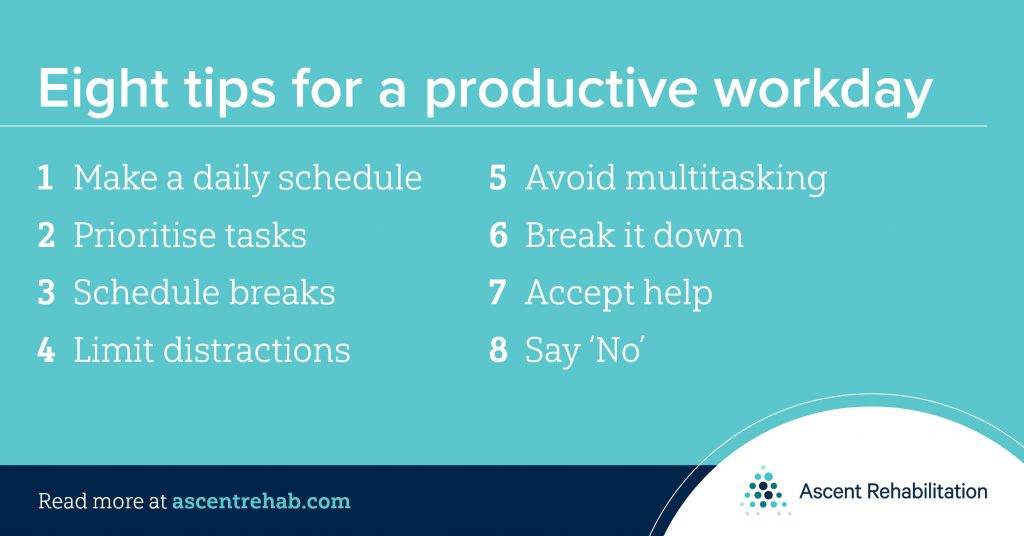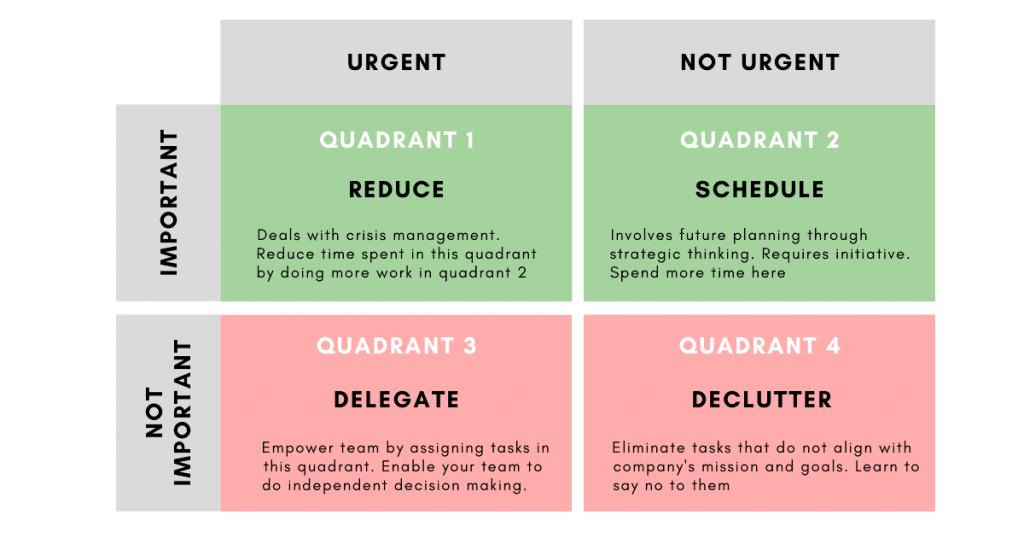How To Optimise Workplace Productivity

What is time management? Time management is the process and planning of activities we manage in our day-to-day lives. Having effective time management skills is a great benefactor for people wanting to achieve organisational skills, time efficiency in our workload, and a greater quality to how we complete our work and how we live our lives. If the activities in our lives are disorganised, a person may find themselves feeling a lack of motivation, efficiency, and imbalance. Time management is a learnt skill that impacts on both performance and productivity in the workplace (Dierdorff, 2020). Optimising productivity can be challenging, but once an effective routine is established, you will benefit from it the most.
When time is used more effectively during the day, it can lead to more opportunities for career growth, as well as participating in meaningful activities outside of work, such as spending time with your family, friends, or at the local pub. If time management is not used effectively, it may disrupt workflow, motivation, and the quality of your work. Everyone can have their good and bad days at work, but some strategies can be utilised for optimum concentration. Everyone is different, so some strategies might work for you, but not for your colleague. Finding your own strategies and taking ownership may help your work productivity, and your work quality. In the workplace, many strategies can be used to optimize productivity. Here are a few simple steps, that when used effectively, can enhance time management skills in the workplace.
Eight Ways To Make Your Workday More Productive:
Daily scheduling: Take the time to jot down a list of activities and check them off throughout the day. It’s a small but easy activity that can develop into a tangible process to use in the workday. This activity can help you achieve a moment of satisfaction and relieve workplace stress once all your activities are checked off.
Prioritizing activities: An easy method to prioritise your activities is by using the Eisenhower Matrix. This is a simple four quadrant process that may help you organise tasks as either important and urgent, important but not urgent, urgent but not important, and not urgent and not important (Scroggs, 2020). This is a simple method which allows you to organise your workplace duties from your most urgent and to your least important tasks of the day.
Scheduling breaks: It’s important to be kind to yourself and remember that you are human. Taking the time to schedule breaks throughout the day will allow you to focus your energy on one thing at a time. Having a small break can include changing environments, getting some fresh air, exercising, meditating, or eating.
Limiting distractions: This is a strategy to concentrate more on the task at hand. This can include putting the phone on silent, turning off email notifications, moving yourself to a different area in the office that will have less distractions, or working alongside productive people.
Avoid multitasking: Multitasking can be an inefficient way to complete tasks. When quickly moving from one task to the another, it can cause a lack of focus, poor work quality and can often be less time efficient. Completing one task at a time may support you to focus solely on that task and completing it to a higher standard in an efficient time period.
Breaking big projects into smaller goals in realistic time frames: Breaking a big project into smaller tasks may let you look at the bigger task in more achievable bite size pieces. Setting goals in a realistic time frame may allow you to work on a task at a realistic speed. This will help you manage completing your tasks on time.
Allowing others to help: Don’t be afraid to delegate work or accept your colleague’s assistance. Accepting their help is an opportunity to offload too much work, and can be helpful to take some pressure and stress off from a higher workload.
Learning to say ‘no’: Saying no to extra work may often be difficult at times. It’s important that when you have too much work to focus on saying no, rather than take on more (which may cause additional stress). If you feel uncomfortable with a direct “no”, remember, you have the time to think of an answer rather than saying “no” right away. If not, offer an alternative solution and take on a small amount of the job to help your colleague, rather than the whole project.
Using only a few of these time management skills will not only demonstrate your improvement of your self-awareness in the workplace, but will increase your work productivity. This could be by simply understanding what time of the day is most productive for you and using that time effectively, or helping you delegate your workload from what is most to what is least important to achieve throughout the workday. Time management skills can be applied to increase all sorts of productivity. This may include from the quality of your work to how efficient your work tasks can be completed. These can be important skills, that with practice, can be applied to a variety of aspects that will improve your day-to-day living.
References:
Dierdorff, E. (2020). Time Management Is About More Than Life Hacks. https://hbr.org/2020/01/time-management-is-about-more-than-life-hacks
Scroggs, L. (2020). Avoid the “Urgency Trap” with the Eisenhower Matrix. https://todoist.com/productivity-methods/eisenhower-matrix



Leave a Reply